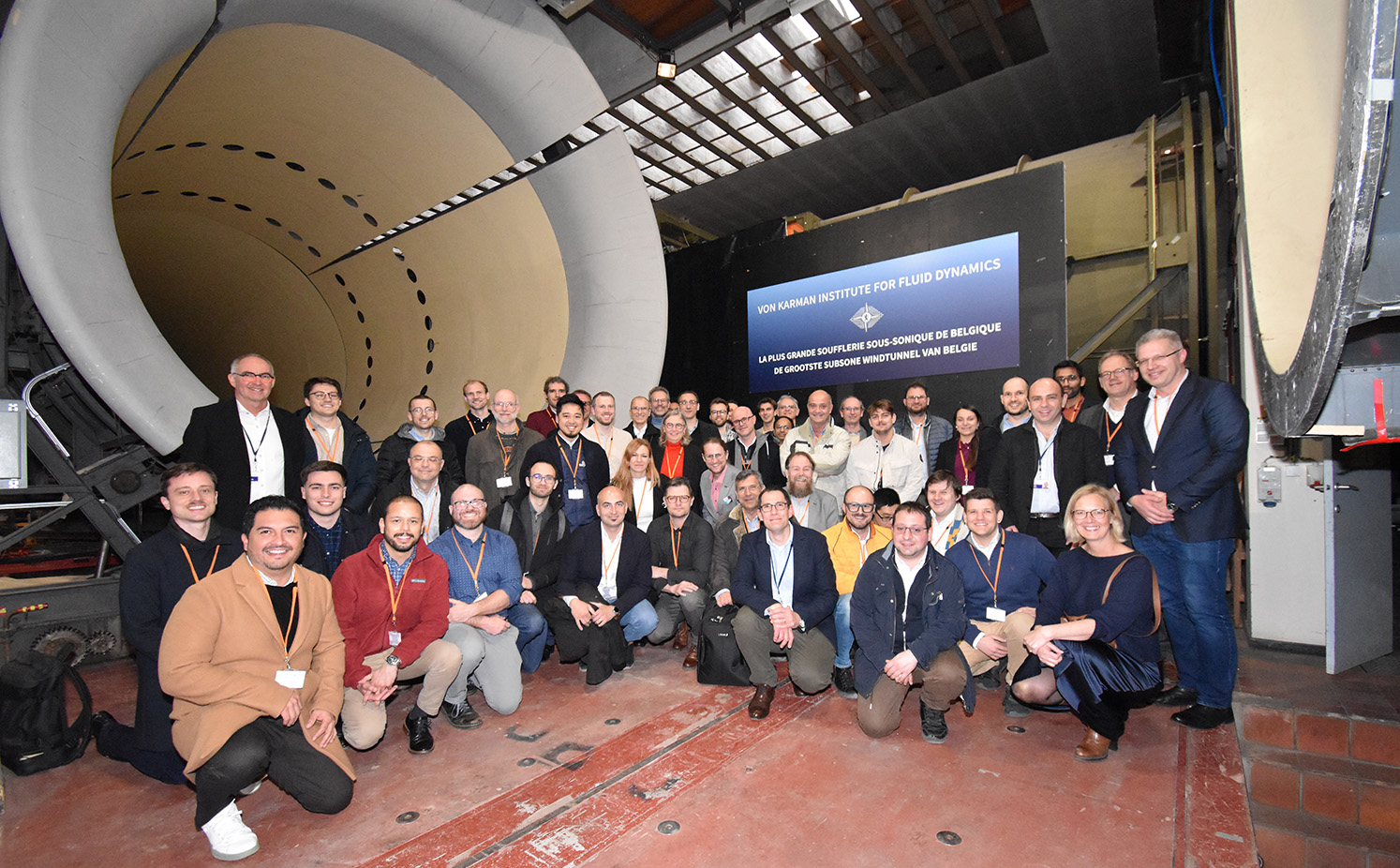 |
 |
 |

The von Karman Institute (VKI) recently hosted a highly successful workshop titled "Hydrogen in Aviation and Space: Opportunities and Challenges," organized in collaboration with EUCASS (European Conference for AeroSpace Sciences) and EASN (European Association Sciences Network) held on March 12-13, 2025, the event brought together 61 participants from various sectors, fostering a rich environment for networking, knowledge exchange, and collaboration.
The workshop began with a visit to the VKI laboratories, providing attendees with a firsthand look at the cutting-edge research facilities. This visit set the stage for the insightful discussions that followed.
The objectives of the workshop were centered around three key themes:
- Aerospace enables knowledge and experience transfer of hydrogen to Aeronautics.
- Aeronautics drives the cost reduction for Aerospace by providing new investments to hydrogen-critical materials, technologies, and procedures.
- The Workshop investigates synergies between Aerospace & Aeronautics, common and different objectives, lessons learned.
Content of the workshop
Focus Area 1 - Handling & Logistics
- Keynote: Hydrogen energy: A journey underway at Air Liquide to meet the challenges of hydrogen for aviation and space, Jean-Pierre Planckaert, Air Liquide
- LH2 implementation at the Guiana Space Center, Patrick Burdaszewski, CNES
- Technology Transfer from Space - System Design, Testing and Operation of Liquid Hydrogen Systems, Daniela Lindner, DLR Lampoldshausen
Focus Area 2 - On-board integration 1 (Storage)
- Keynote: Overcoming the Cold Facts: LH2 Storage Solutions for Space Exploration, Gustavo Moreno, Ariane Group
- Aviation hydrogen tanks: design – integration – challenges, George Lampeas, University of Patras
- Assessing the sensitivity of hydrogen storage design parameters on aircraft level, Tim Burschyk, DLR Hamburg
- Sloshing and thermodynamic response of a LH2 tank, Jean-Baptiste Gouriet, VKI
Focus Area 3 - On-board integration 2 (Support Equipment)
- Keynote: LH2 developments at NLR - Flying a Pipistrel Velis Electro on Hydrogen, Frank Wokke, NLR
- Hydrogen Aviation Lab - Hydrogen in aviation from an operational perspective, Patrick Seiler, Lufthansa Technik
- Multiphase and microgravity aspects related to hydrogen applications in space, Johan Steelant, ESA
- How to use H2 on space launcher applications, Lilian Prevost, CNES
Focus Area 4 - Enabling technologies
- Keynote: Overview of the funded research on hydrogen under Clean Aviation, Janik Fernandez, Clean Aviation
- Challenges and Solutions in Hydrogen for Civil Aviation, Neys Schreiner, Cranfield University
- Digital twins on hydrogen propulsion, Pacôme Magnin, Siemens
- Robust Sustainability Assessment of Liquid Hydrogen Aircraft Tanks, Konstantinos Tserpes, University of Patras
Concluding session
- Keynote: Hydrogen economy: research opportunities for scaling up, Mr. Luca Feola, Project Officer at Clean Hydrogen JU
- Roundtable and exchanges on challenges
Throughout the two days, participants engaged in a series of presentations and panel discussions that highlighted the latest advancements and challenges in hydrogen technology for aviation and space applications. The event underscored the importance of cross-sector collaboration in driving innovation and reducing costs. The discussions also emphasized the need for continued investment in hydrogen-critical materials and procedures to ensure sustainable progress.
Participants praised the workshop for its well-organized program and the valuable networking opportunities it provided. The event facilitated meaningful connections and the exchange of ideas, paving the way for future collaborations.
In conclusion, the "Hydrogen in Aviation and Space: Opportunities and Challenges" workshop at VKI was a resounding success. It not only highlighted the potential of hydrogen as a key enabler for sustainable aviation and space exploration but also fostered a collaborative spirit among industry leaders and researchers. The lessons learned and perspectives shared during the event will undoubtedly contribute to the ongoing efforts to advance hydrogen technology in these critical sectors.
Stay tuned for the next workshop as we continue to explore and innovate in the field of hydrogen technology for aviation and space.


